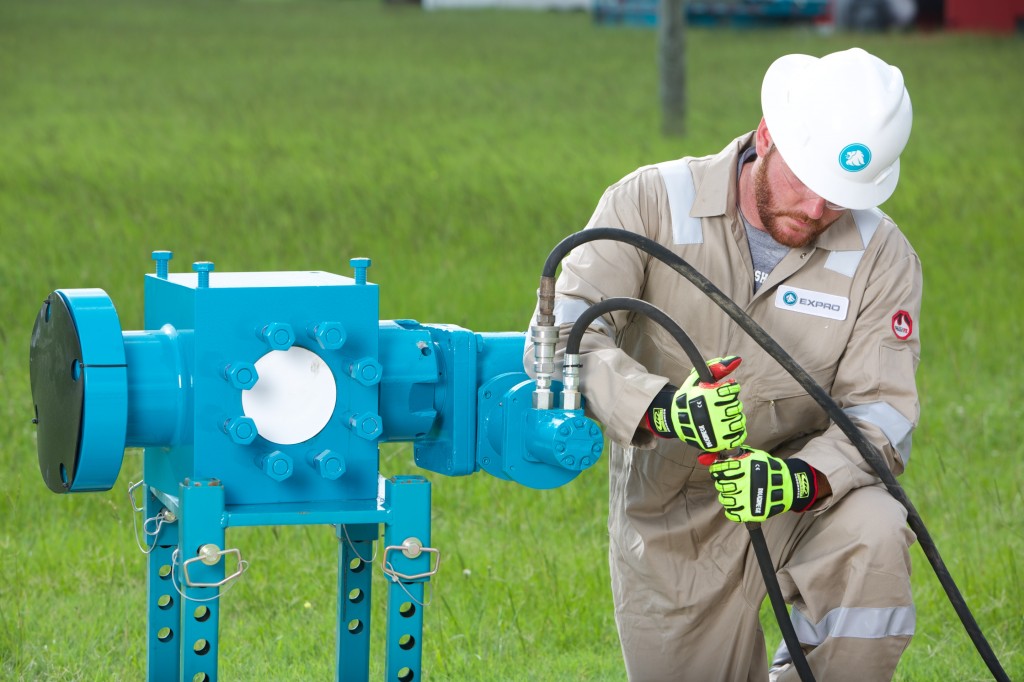- Home
- Products & services
- Well Construction
- Well Flow Management
- Subsea Well Access
- Subsea Test Tree Assemblies
- Intervention Riser System
- Riserless Well Intervention System
- PRT Offshore
- Motion Compensated Coiled Tubing Lift Frame
- Inline Compensator 600T
- Inline Compensator 220T
- ProFrame™ Coiled Tubing Lift Frame
- HOSS™ Wireline Lift Frame
- Gate Valve Flowhead
- Surface Test Tree
- Quick Union
- Lubricator Valve
- Subsea Landing String
- Subsea Controls
- ProComp™ Tower
- Intervention Work Tower
- Blue Sky Tower
- Accessories & Rental Tools
- Contact Us
- Well Intervention and Integrity
- Coretrax
- Sustainable Energy Solutions
- Case studies
- Media hub
- Careers
- Citizen of the world
- Contact
- Our 2023 Sustainability Review
- About Us
- Investors
- Locations
ATCE 2014: Diary of a conference - Closed loop drilling and control

Rick Todd, General Manager of PowerChokes®, Expro
In conventional drilling, the hydrostatic pressure applied by drilling mud is always higher than the pressure of the reservoir – this prevents gas and oil from escaping the rock and travelling up the annulus to the rig floor during drilling operations.
Drilling for oil and gas is no longer ‘conventional’ and reservoirs are more challenging due to factors such as age and environment. The window of pressure between pore pressure and frac pressure – also called the gradient – can be very narrow.
Using mud that is too heavy can damage the reservoir, and using mud that is too light can invite a wellbore control issue. This is where chokes come in.
With a properly controlled choke, the weight of the mud can be manipulated with ‘back pressure’ which creates the same effect that a heavier mud column would have on the reservoir. Therefore, a ‘back pressure choke’ can be a very basic installation on to a drilling system and eliminate the need for weighing up mud or even killing the well in a control scenario.
Back pressure systems can also be plumbed into rig surface equipment in such a way that the rig choke and standard well control equipment are still in place. Thus, allowing drilling operations to progress efficiently.
Although a prevalent issue in more challenging environments today, Expro’s PowerChokes have been providing back pressure control and closed loop drilling systems for more than two decades.
In recent years however, operators want more advanced control and automated systems. The Automatic Back Pressure (ABP) is a pressure set-point system that allows the user to decide the appropriate pressure to maintain on a closed loop drilling circuit.
These systems keep a consistent pressure within an accurate window while operators can stand back and monitor their operations and ‘bigger picture’. As connections are made whilst drilling, and the mud pumps are cycled on and off, the ABP will control the choke to maintain steady pressure preventing damage to the reservoir and managing any influx to the well or ‘kick’.
By eliminating most of the cyclic pressure on the wellbore and allowing for faster connection times, drilling becomes streamlined. Furthermore, as pressure is managed directly and the system logs the data, operators can be automatically alerted to any issues saving valuable time and money, and most of all increasing the safety of their installations and people.
Related articles
Find detailed information about our products and services.
